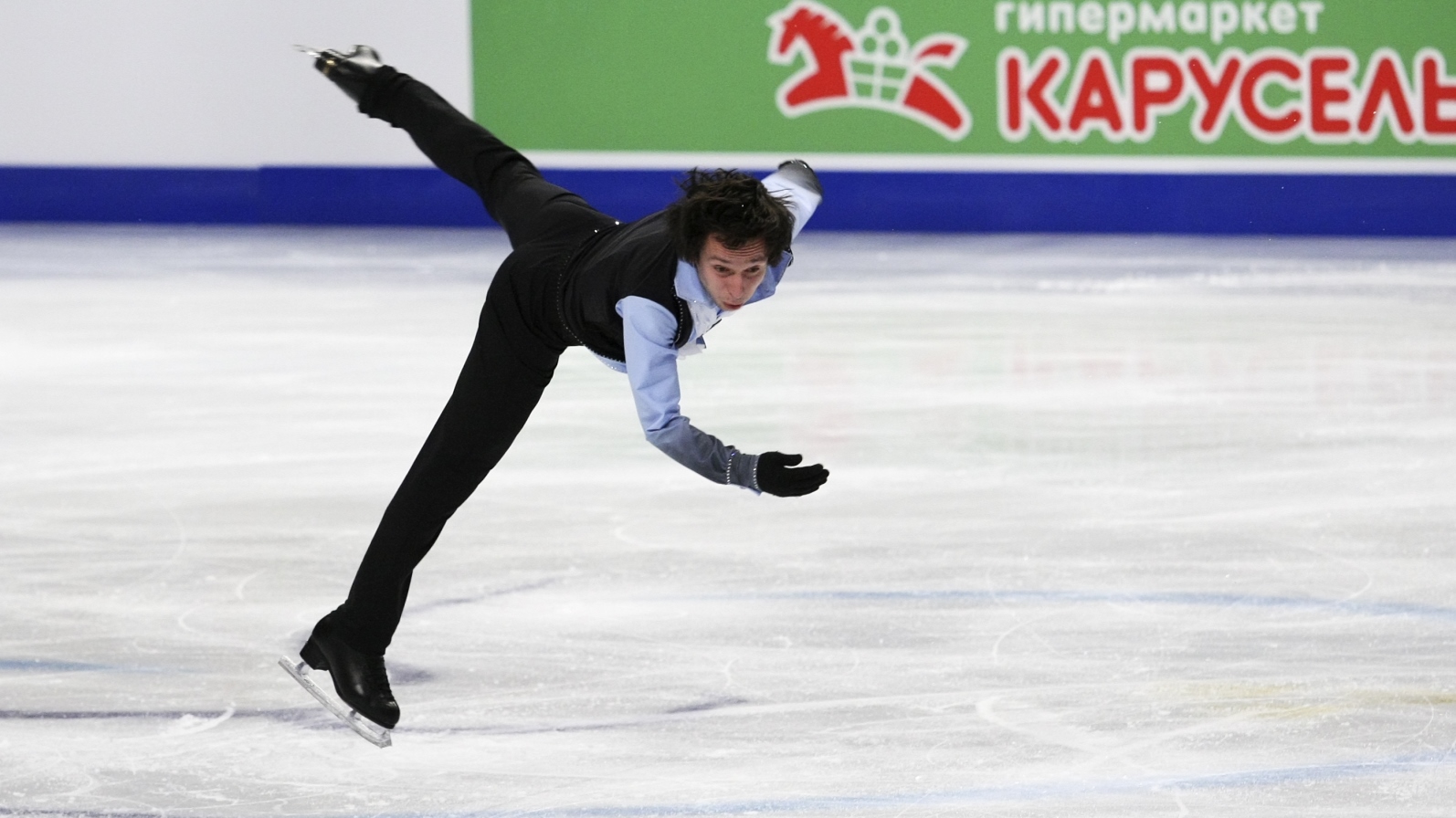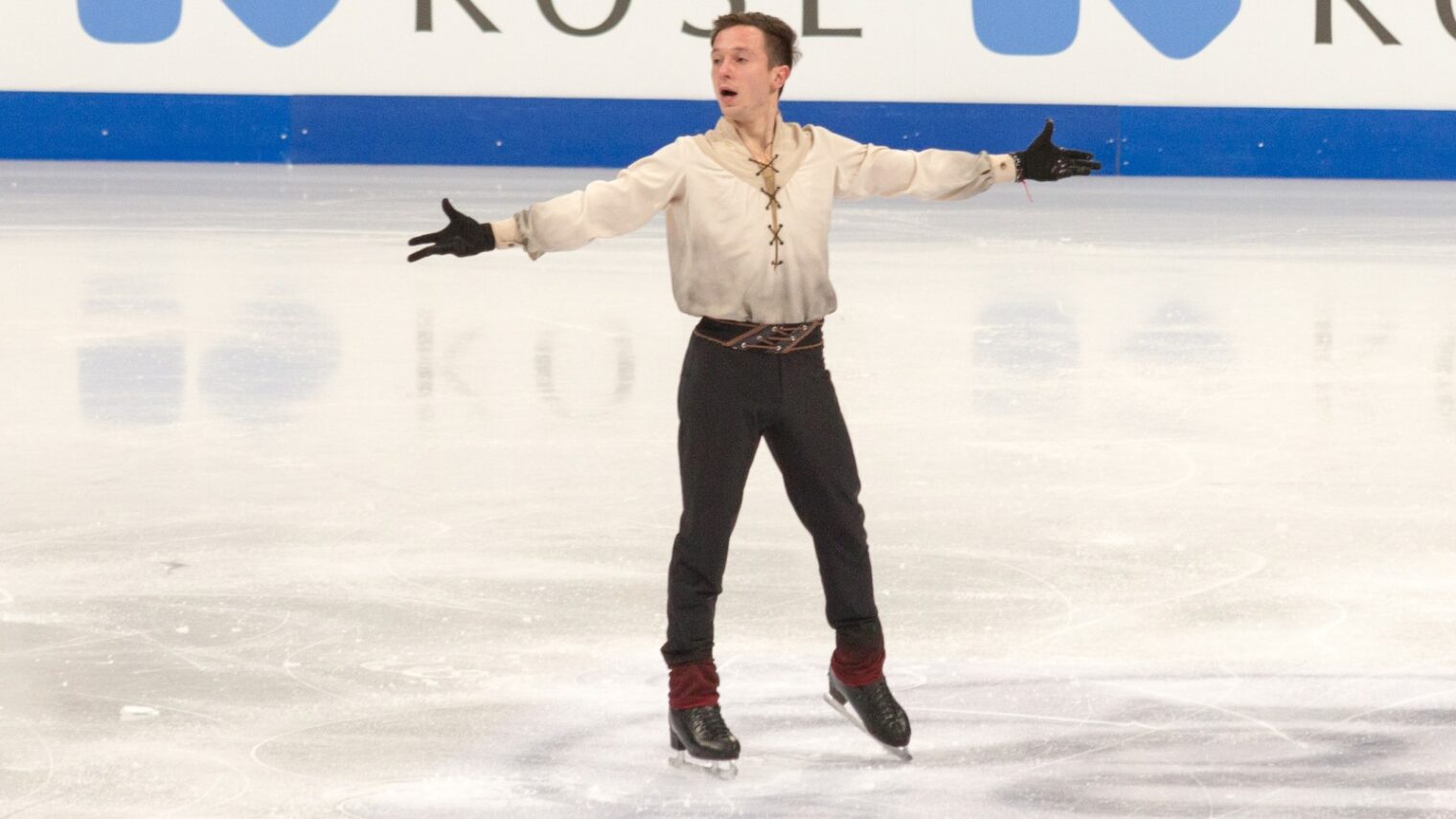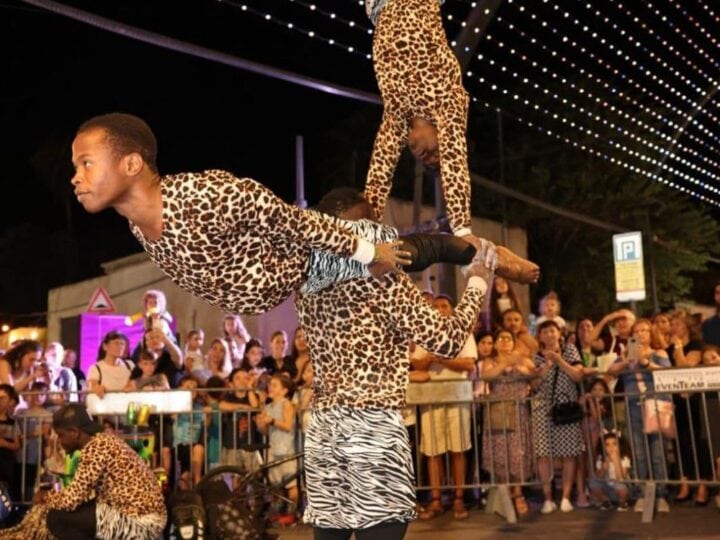Champion figure-skater Alexei Bychenko says moving to Israel on his own in 2010 at age 22 from his native Ukraine wasn’t hard at all.
“It was a pleasure. I love Israel,” Bychenko tells ISRAEL21c from Hackensack, New Jersey, where he practices four hours a day, six and a half days a week, at the Ice House rink in preparation for the 2018 Pyeongchang Winter Olympics.
The games start on February 9, 2018, four days after he turns 30.
The 2016 European silver medalist (the first Israeli ever to mount the podium at the European Figure Skating Championships) also does cardio, stretching and strength training off the ice three hours a day and coaches eight other Israeli skaters at Ice House.
“I only stop moving when I sleep,” he laughs, making us suspect he’s never really still.
Bychenko is the kind of guy who appreciates that spectacular accomplishments don’t come easy. His favorite skating move is the quadruple jump, he says, because it’s incredibly difficult to master.
“I love jumps because it’s physically hard but you really enjoy them. It took a long time to learn them,” he says.

His determination has paid off. Bychenko, who also represented Israel at the 2014 Winter Olympics in Sochi, clinched 10th place in the figure skating world championships in Helsinki in March 2017 — the best-ever finish for a male Israeli skater.
Also in 2017, he took second place in the Cup of Tyrol competition in Austria and won bronze medals at the Rostelecom Cup in Moscow and at the ISU Grand Prix of Figure Skating in Osaka.
https://youtu.be/2LeMba_QOBQ
Representing Israel
Bychenko started skating at five years old and represented Ukraine through 2009. He first appeared internationally for Israel at the Golden Spin of Zagreb in December 2011, a competition he would go back and win in 2016.
“Every single competition for the past six years, I feel a responsibility for representing Israel,” he says. “I want to show that Israeli skaters can be real competitors, even ‘dangerous’ competitors. I want to give the understanding to the whole world that we are professional skaters.”
Bychenko’s success has contributed to Israel having its largest-ever delegation going to a Winter Olympics.
In South Korea, six skaters will wear the blue-and-white: Bychenko (whose first name is variously spelled as Oleksii and Alexey) and 2016 World Junior champion Daniel Samohin in the men’s competition; Evgeni Krasnopolski and Paige Conners in pairs; and Adel Tanakova and Ronald Zilberberg in ice dancing.
For this Olympic season’s short program of 2 minutes and 50 seconds, Bychenko skates to the Jewish folk song “Hava Nagila.” His long program of 4:40 is performed to the operatic “Pagliacci” by Ruggero Leoncavallo.
https://youtu.be/AZSsCb0n6s0
Bychenko enjoys traveling, and that’s fortunate because he does a lot of it. He competes in 10 events every season, sponsored by the Israel Ice Skating Federation. He also has a scholarship from the Israel Olympic Committee.
Before the Olympics in February, Bychenko took second place for men in the 2017 CS Golden Spin of Zagreb, a senior international figure skating competition. Shortly after the Winter Games he’ll head to the world championships in Milan.
Away from home
Ironically, Israeli Olympic skaters have to move elsewhere to practice. Although there is a regulation-size rink at Canada Center in Metula, it doesn’t have the capacity to allow serious athletes adequate training time on the ice.
Hackensack is a prime location for Israeli skating hopefuls, and this is where Bychenko moved six and a half years ago. His coaches at Ice House are Galit Chait Moracci, Roman Serov and Nikolai Morozov.
“I miss Israel but I have no choice — I need this rink for the practicing time and the coaches in order to prepare properly,” Bychenko says. “Twice a year I visit Israel because even staying a little while is better than nothing.”
While here, he visits his brother, who arrived in Israel after him. Their mother still lives in Kiev. Bychenko prefers that his girlfriend, family and friends not attend his competitions because their presence puts too much pressure on him.
“They sit at home and pray for me,” he says with a smile.
After his competitive skating career is over, the 174-centimeter (5-foot-7), 68-kilogram (150-pound) athlete has no doubt what he wants to do. “Since I was 15 I decided I’m going to be a coach. It would be pleasure to do that in Israel,” Bychenko tells ISRAEL21c.

















